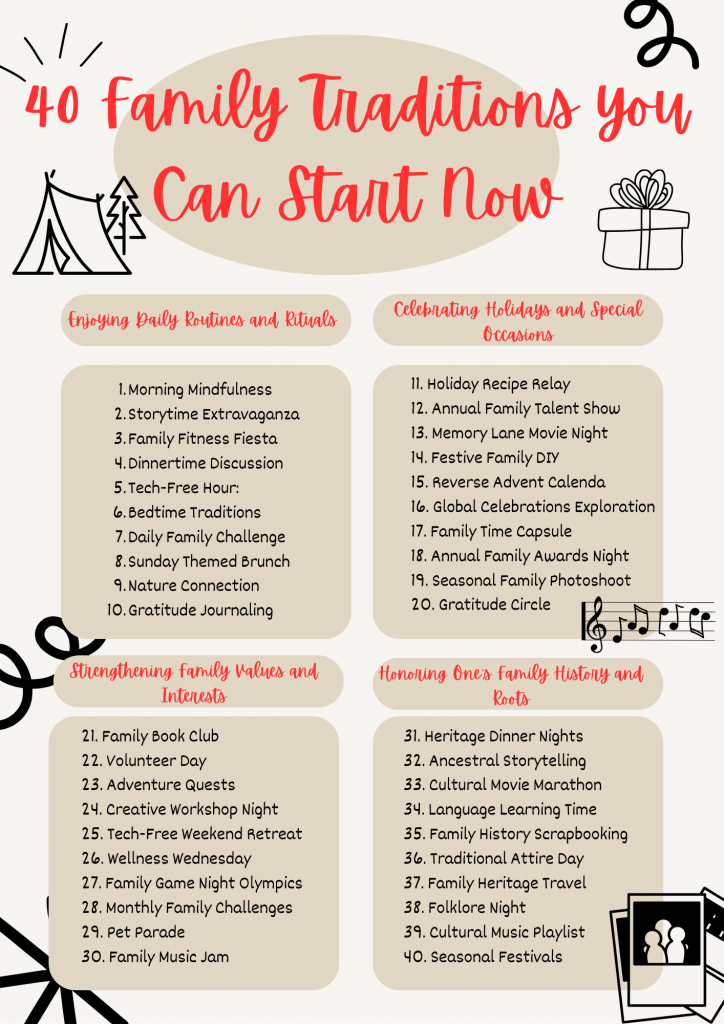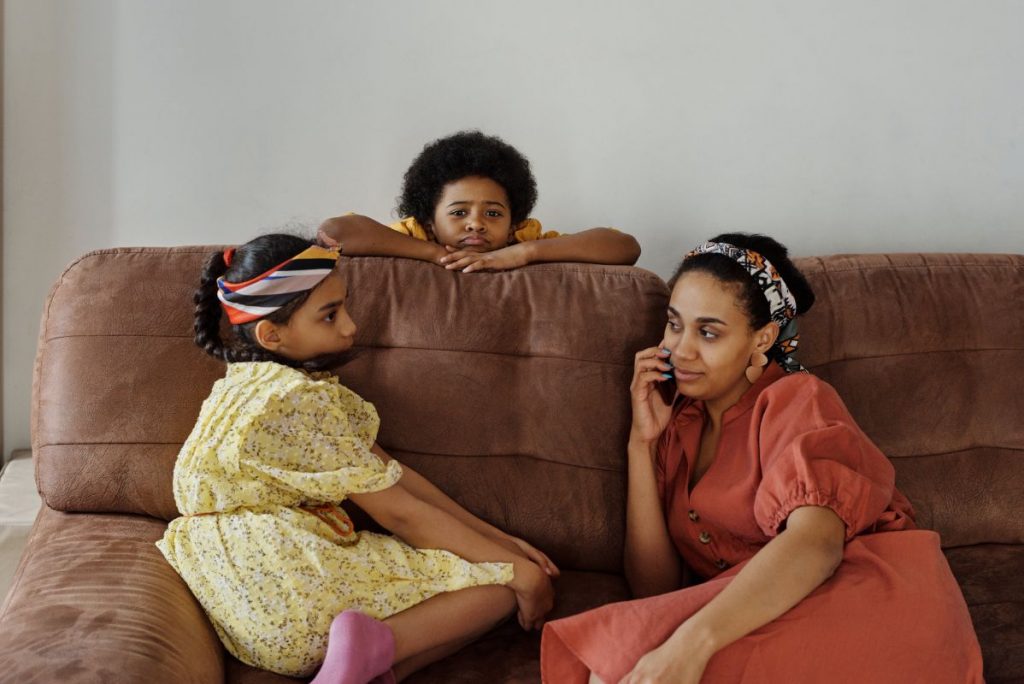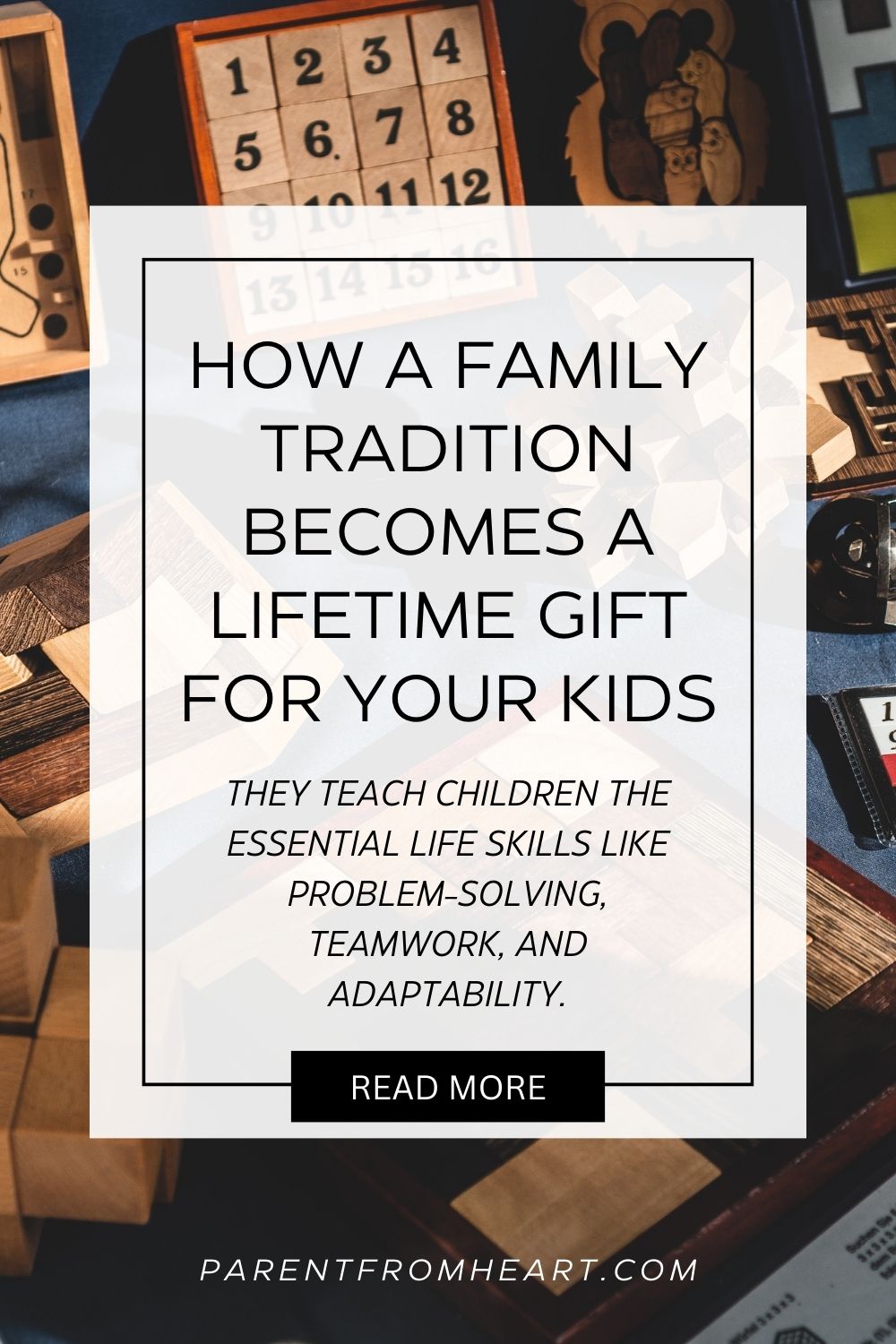I remember it so vividly – once a month, my mom would bring us to the shopping center…
I remember it so vividly – once a month, my mom would bring us to the shopping center so my siblings and I could choose a book to buy. As a single mom, she did not have much, but she made sure we had a budget for books. It was a family tradition that sparked our love for reading.
After hours of scouring the bookstore for a novel that resonated with us, we’d grab a pizza. It was one of the many family traditions that played a significant part in my life. Until now, I replay those moments in my head, and it never fails to make me smile.
My mom has passed on, but the memory of those Saturdays remains. Oh, how I love the scent of a new book. It will always remind me of my siblings’ laughter, my mom’s sweet smile, and the days we celebrated our shared passion for reading.
Now that I am a mom myself, I also started a literary tradition with my kids. I’d bring them to a second-hand book shop where we’d spend hours looking for the perfect book. Discovering a good bargain or a hard-to-find vintage novel is part of the fun! Afterward, we’d get donuts or milk tea and review our loot. My kids look forward to these mini-trips. I’m hoping they’ll remember it with fondness, too.
Did you know that children actively participating in family traditions are 66% more likely to develop strong emotional bonds and a strong sense of identity? In a world buzzing with technology and distractions, it’s the simple yet profound rituals that imprint in your loved ones’ memories. They aren’t just routines; they are the foundation of a child’s emotional development.

From the daily afternoon park trips to the annual camping escapade, these moments contribute significantly to your child’s cognitive, emotional, and social development. They teach children the essential life skills like problem-solving, teamwork, and adaptability.
Picture this: the warm embrace of a bedtime story or the familiar scent of a Sunday morning breakfast. These simple, consistent traditions become emotional anchors for a child. Research suggests that children who experience regular family traditions exhibit higher levels of emotional stability and security, providing them with a sturdy foundation to navigate life’s uncertainties.

Family traditions create pockets of connection amid the hustle and bustle of our daily lives. Events such as weekly game nights or the annual family reunion make family bonds tighter. Through shared experiences and laughter, family traditions foster positive emotions and provide a strong support system for the child.
In a world where external influences often shape identity, family traditions become a sanctuary of belonging. By participating in customs passed down through generations or creating new ones, the child develops a sense of self rooted in family values.
Children raised in families with established traditions tend to exhibit higher levels of resilience, self-esteem, and overall well-being. The emotional intelligence nurtured through these traditions becomes an invaluable asset, shaping a child’s ability to form healthy relationships. They also help kids manage life’s ups and downs with confidence and grace.
In 2013, psychologist Sara Duke revealed:
“The [children] who know much about their families tend to do better when facing challenges.”
Sara Duke, a child psychologist working with kids with learning disabilities
Meanwhile, her husband, psychologist Marshall Duke, in collaboration with Robyn Fivush, orchestrated an experiment introducing the “Do You Know?” scale. It comprised 20 queries designed to assess children’s comprehension of their origins, ranging from the geographical roots of their grandparents’ childhoods to the locations of their parents’ high schools and family medical history.
Surveying nearly 50 families while discreetly recording dinner conversations, the researchers unearthed a compelling correlation: The more the children knew about their family’s history, the stronger their sense of control over their lives, the higher their self-esteem, and the more successfully they believed their families functioned (Duke, Lazarus, Fivush, 2008). Intriguingly, these youngsters showcased heightened resilience, adeptly moderating the impact of stress.
In essence, family traditions pave the way for a wholesome self-awareness from an early age. This foundation continues to evolve and shape their identity as they progress through the journey of growing up.
While we navigate the intricate balance between work and home life in today’s fast-paced world, shared routines emerge as keystones for the well-being of families. An exhaustive review spanning five decades of research supports this claim. It revealed that these rituals provide stable and harmonious family dynamics.
Unveiled in the December edition of the American Psychological Association’s (APA) Journal of Family Psychology, the 50-year study paints a vivid picture of the enduring vitality of family traditions. It reveals that:
Family routines and rituals are alive and well and are associated with marital satisfaction, adolescents’ sense of personal identity, children’s health, academic achievement and stronger family relationships.
Fiese, Tomcho, Douglas, et al (2002)
So, how do we start a family tradition? We’ve got your back on building a treasure trove of memories -from selecting the perfect events to embracing flexibility, to addressing resistance from the young ones.
Your family is unique, and so should be your traditions. Think about what makes your tribe tick – are you adventure seekers, bookworms, or maybe a mix of both? Tailor your traditions to align with these interests and dynamics. Whether it’s a weekly game night, a monthly outdoor adventure, or an annual themed dinner, the key is to make it authentically yours.

Now that you have a list of ideas, it’s time to whip out the planner. Family traditions need not be grand affairs; in fact, the simplicity is often what makes them memorable. No matter what activity you choose, remember that consistency is key.
Schedule your traditions in a way that fits your family’s rhythm. It’s not about quantity but quality. Carving out dedicated time for these rituals ensures they become cherished moments in your brood’s collective memory.
Children are bursting with creativity and imagination, so why not tap into that resource? Involve them in the tradition creation process. Ask for their input on what activities resonate with them or let them contribute their unique touch to existing traditions. By making them active participants, you not only create a sense of ownership but also foster a deeper connection to these shared experiences.

The secret to a successful family tradition isn’t rigidity but adaptability. Life throws curveballs, and it’s okay to tweak rituals to suit changing circumstances. Maybe your annual beach day becomes a backyard picnic, or your weekly movie night transforms into a virtual game night. Flexibility ensures that the activities remain enjoyable rather than burdensome, evolving with your family’s growth and interests.

Are you excited to begin your very own family tradition? We’ve curated the best rituals you can start with your loved ones, whether you’re a family of ten or three.
Who says you need to plan something grand to make timeless memories with your family? The routines on this list may be simple, but they can also make a lasting impact.
Oh, the holidays! Many fond memories come from celebrating special occasions with loved ones. Check out this list of family tradition ideas you can do with your brood.
Planning activities that resonate with what your family enjoys can ensure everyone has a good time. You might find what they love doin from the list below.
As we start creating family traditions, it’s crucial to acknowledge the occasional “not again” or “not today” that may try to dampen the mood. The kids may resist some activities, or parents may be too busy to keep up with the flurry of events.

Following these tips, you can address these challenges and barrel through conflicting schedules, varied interests, and ever-changing moods.
Ah, conflicting schedules – the bane of many a parent’s existence. Finding a common window for family traditions between work commitments, school activities, and extracurricular endeavors can seem impossible. Fear not! One strategy is to synchronize calendars regularly. Then, identify pockets of time that align for everyone. Flexibility is vital, allowing for adjustments when you meet unexpected bumps in the road.
Planning age-appropriate traditions can feel like walking a tightrope. What engages a teenager might not captivate a preschooler, and vice versa. The solution? Find activities that cater to different age groups. For example, a family game night can include board games for the younger kids and strategic games for the older ones. By blending elements, you create routines that delights all generations.
Resistance from family members can be frustrating. Perhaps teenagers find traditions “uncool,” or younger children do not like routine disruptions. Here, open communication becomes your ally. Call for a family meeting, allowing each member to share their thoughts and preferences. Create traditions that honor everyone’s input, turning resistance into a team effort.
In a family, interests can vary as night and day. While one child might be passionate about outdoor adventures, another might prefer cozy indoor comforts. The solution is to diversify your family tradition portfolio. Rotate through different activities, ensuring each one gets a turn to do something they love. This way, the tradition becomes an inclusive celebration of everyone’s unique tastes.
Today’s fast-paced life can make it challenging to stick to routines. The best advice is to welcome change and let your traditions evolve. Are you a tech-savvy family? Consider incorporating online games or interactive apps into your activities. The essence is to preserve the core values while embracing the tools and innovations of the present.

Modern life’s complexities make it easy to overlook the significance of seemingly routine experiences. Yet, these are the very moments that build the bridge between generations, creating a legacy that transcends time. The joy of shared laughter, the warmth of familiarity, and the comfort of a well-loved tradition are the treasures that money can’t buy.
So, start your own family tradition, be it a nightly ritual, a holiday celebration, or a monthly family adventure You might not see the results instantly, but the lasting memories you create will stand the test of time.
Do you have a family tradition you’d like to share? We’d love to hear them! I’m sure we’d get an idea or two!
Like this post? Click on the image below to share this on Pinterest – Thank you!

Being a teenager is like standing on a bridge between childhood and adulthood. It’s exhilarating, confusing, lonely, and…
You know, growing up isn’t a cakewalk. We all face those bumps and hitches that shape us into…
Ever caught yourself nudging a rogue pea back into its lane, even though you’re decades past the kids’…